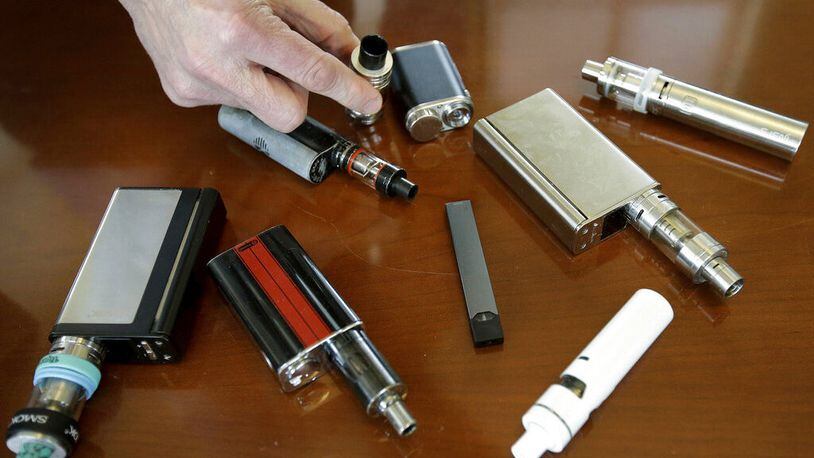There have been 805 reported cases of lung injury and 12 confirmed deaths in the United States associated with vaping, according to data from the Centers for Disease Control and Prevention. The data shows that of those cases, most patients have reported a history of using e-cigarette products containing THC -- many of which are bootleg products containing ingredients unknown to the user.
"There's a huge market for what are now illicit cannabis goods, and they tend to be much cheaper than their legal counterparts," David Abernathy, an executive with Arcview Market Research, a cannabis investment and market research firm, told The Washington Post.
NBC News commissioned cannabis testing lab CannaSafe to test 18 THC cartridges from both legal dispensaries and unlicensed dealers.
The three cartridges purchased from legal dispensaries in California found no heavy metals, pesticides or Vitamin E -- a residual solvent, NBC News reported. Thirteen of the 15 cartridges from the black market did contain Vitamin E.
CannaSafe tested 10 of the bootleg THC cartridges for pesticides, and all tested positive, NBC News reported. Each contained myclobutanil, a fungicide that can turn into hydrogen cyanide when burned.
Dr. Melodi Pirzada, a pediatric pulmonologist at NYU Winthrop Hospital in Long Island, New York, called the results "very disturbing."
"(Myclobutanil is) going to cause a very toxic effect on the lungs," she said. Pirzada noted that Vitamin E can also cause lung damage when inhaled.
No one product or substance has been conclusively identified as the cause of the lung injuries, the Post reported. However, testing is underway. The Food and Drug Administration is analyzing 80 samples received from patients, The New York Times reported, but hasn't made the results public.
The CDC and the FDA advise against using e-cigarette or vaping products.
About the Author
